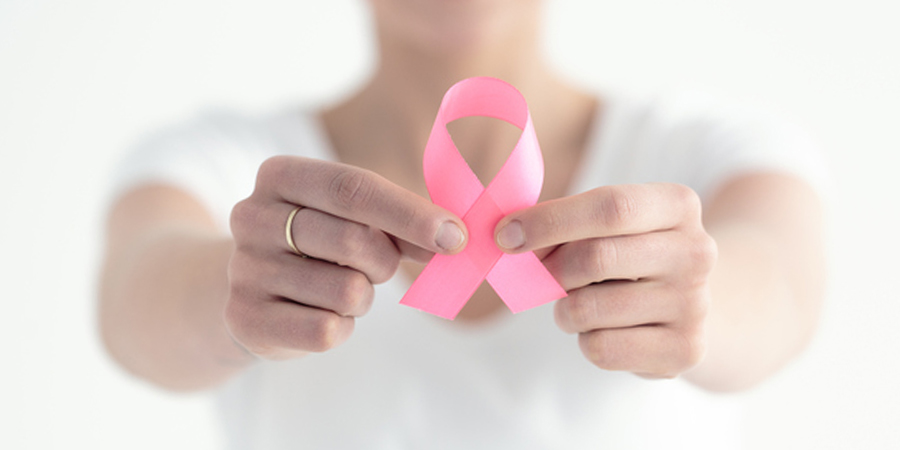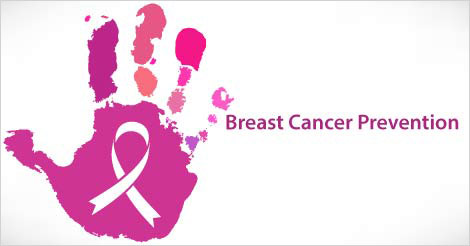Breast cancer prevention
When cell in any part of the body begin to grow out of control, can become a cancer. These cells usually form a tumor and can spread to other areas.
If there is a lump or you find any other changes in the breast it can be sign or symptoms of breast cancer. Changes in the size shape or skin of breast also indicates symptoms of breast cancer. Its basically a cancer that forms in the cells of breasts.
It can occur in men and women both but its far more common in women. Its estimated by doctor that 5 to10 percent of the breast cancer are linked to gene mutation and inherited through generations.
In recent studies there are new ways have been shown to improve risk profile, including becoming aware of the geography of your breasts. You won’t eliminate risk altogether; the biggest risk for breast cancer is being a woman. But you may be able to dramatically curtail your risk of developing the disease.
It has been proven in research and studies lifestyle changes can reduce the risk of breast cancer even in high risk women. By following below steps risk can be reduced.
- Limit alcohol. The more alcohol you drink, the greater your risk of developing breast cancer.
- Don’t smoke. Accumulating evidence suggests a link between smoking and breast cancer risk, particularly in premenopausal women.
- Physical Activity. Physical activity can help you maintain a healthy weight, which, in turn, helps prevent breast cancer. For most healthy adults, the Department of Health and Human Services recommends at least 150 minutes a week of moderate aerobic activity or 75 minutes of vigorous aerobic activity weekly, plus strength training at least twice a week.
- Breast-feeding. Breast-feeding might play a role in breast cancer prevention. The longer you breast-feed, the greater the protective effect.
- Be careful to limit your dose on hormone therapy. Combination hormone therapy for more than three to five years increases the risk of breast cancer. If you’re taking hormone therapy for menopausal symptoms, ask your doctor about other options.
- Reduce exposure to radiation and pollution. Medical-imaging methods, such as CT, use high doses of radiation. While more studies are needed, some research suggests a link between breast cancer and radiation exposure.
Healthy diets and how it helps
Eating a healthy diet might decrease risk of some types of cancer, as well as diabetes, heart disease and stroke. For example, women who eat a Mediterranean diet supplemented with extra-virgin olive oil and mixed nuts might have a reduced risk of breast cancer.
Reduce intake of birth control pills
A recent study that indicated an association between hormonal contraceptive use and breast cancer determined one additional breast cancer could be expected for every 7,690 women who use hormonal contraception for at least one year.
Breast Morphology

One of the newest ways to protect yourself is to learn whether you have dense breasts.When you have more tissue than fat in your breasts, which is common in younger women, it makes cancer harder to detect on a mammogram: Both tumors and breast tissue show up white, while fat looks dark. Even more important, having dense breasts makes your cancer risk up to 6 times higher.
In the meantime, ask the radiologist who does your mammogram whether your breasts are dense. If your density is low, you still need regular checkups. If it’s high, there’s nothing you can do to lower it (though breast density does tend to decrease with age) but you can protect yourself by asking your doctor about adding MRI or ultrasound to your screening regimen, or switching from traditional mammography to digital, which is higher in contrast, making it easier to see abnormalities in dense breast tissue.
What else can I do?

Be careful and vigilant about breast cancer detection. If you notice any kind of changes in your breasts, such as a new lump or skin changes, consult your doctor. Also, ask your doctor when to begin mammograms and other screenings based on your personal history.
Treatment Offered in India with MedicoExperts
At MedicoExperts, we understand the significance of your health, well-being and privacy. Our aim is to provide you the best experience for your Breast cancer treatment in India at our top associate hospitals in India. We would also provide you end to end assistance for your medical trip to India and shall provide complete solution for your treatment – right from assisting you with the visa, hotel arrangements, airport pick up and drop, inland transfers, money exchange or sight-seeing and all other concierge services. We thus assure you hassle-free arrangements for evaluations, surgery, recuperation, stay and travel in India. For more information and getting a tailor made treatment plan for your treatment in India, please mail us your details and medical history at [email protected].
[maxbutton id=”1″ ]



